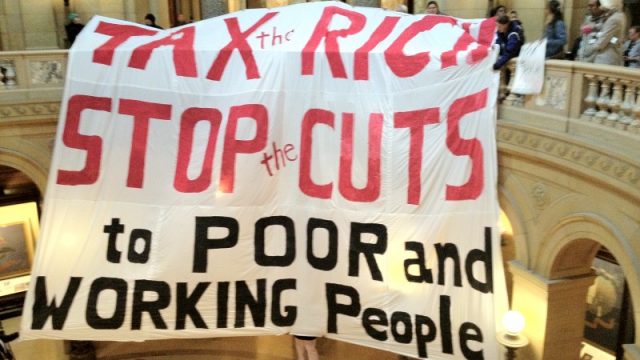The Rich Are Getting Richer, And The Poor Are Getting Richer Too

Professor Mark Perry posted yesterday two graphs that are stunning in their implications, especially as President Obama and Democrats attempt to execute an election-year pivot way from their Obamacare disaster to income inequality.
The folks on the left are fond of telling us that the poor are getting poorer, but is that true? As Perry shows, the number of low- and middle-income households has declined since 1967 while the number of upper-income households has increased. And these numbers are in constant 2009 dollars, so this isn’t a function of inflation:

You should read Perry’s entire post, but this is from his conclusion:
The top two charts above show that the share of American “middle class” households making either: a) $25,000 to $75,000 or b) $35,000 to $75,000, did decline starting in the 1970s, but it was because a greater share of American households were moving up to a higher-income category ($75,000 and above), not down into a lower-income category (which were declining as shares of all households, though at a lower rate than the decline in the share of middle-income households). And that movement of the middle-class (and the lower-income group) was so significant that between 1967 and 2009, the share of American households earning incomes above $75,000 more than doubled, from 14.4% to 31.6%.
This runs contrary to much of the political narrative we hear in America, and certainly contrary to entitlement programs (food stamps, etc.) that are bursting at the seams with new enrollments. But given these numbers you have to ask, is the expansion of government dependence and the general feeling that prosperity is declining in America a function of truly increasing poverty, or a function of political definitions of “poverty” that increasingly include people who aren’t, by historical standards, poor?




